Opinions & Interviews
Petrishenko names Belarus' social policy priorities
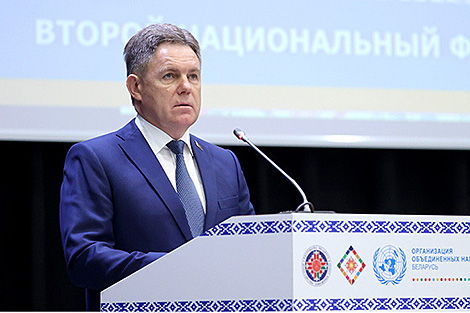
MINSK, 19 June (BelTA) – Deputy Prime Minister Igor Petrishenko named priorities of Belarus' social policy as he addressed Belarus’ Second National Forum on Sustainable Development in Minsk on 19 June, BelTA has learned.
“The ideology of sustainability cuts across all strategic and program documents of the country, primarily the National Sustainable Development Strategy. The strategy is aimed at maintaining a balance of sustainability across several important elements,” said Igor Petrishenko.
The first one is a happy family. “A family with children should become not just a social norm in our society, but a paragon of family relations. Today there are more than 121,000 families raising three or more children in the country. We have expanded the list of cases when family capital can be used prematurely for housing, education and healthcare purposes. “More than 137,000 Family Capital deposit accounts were opened as of 1 May 2024. In general, everyone who needs support from the government, gets it,” the deputy prime minister noted.
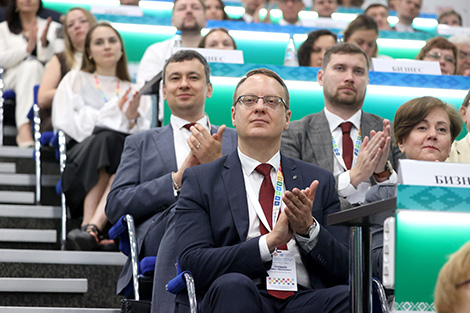
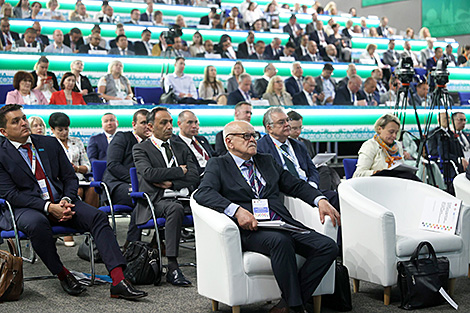
The second element is a knowledge-based nation and a strong economy. “Belarus is a country of smart, educated, creative people who are capable of making breakthroughs and moving forward. Belarus' literacy rate is close to 100% and the Education Index puts Belarus on the 30th place. A strong IT sector is crucial for building a knowledge-based economy. First of all, this implies the incorporation of information and communication technologies into all spheres of social life. The share of Internet users in Belarus is growing steadily and now is estimated at 89.5%. Knowledge and technology are the drivers of Belarus' economic growth,” noted Igor Petrishenko.
The third element is building transparent, open and trusting partnerships between the state, society and business. “The government seeks to create comfortable conditions for doing business. Today, SMEs account for creating every third job in the country. Entrepreneurs generate more than 28% of gross added value. Considerable efforts have been injected into creating a comfortable and investor-friendly environment. Investments have been redirected into new industries and high-performance jobs, as well as infrastructure development. In 2023, investments rose by 15% over 2022,” Igor Petrishenko said.
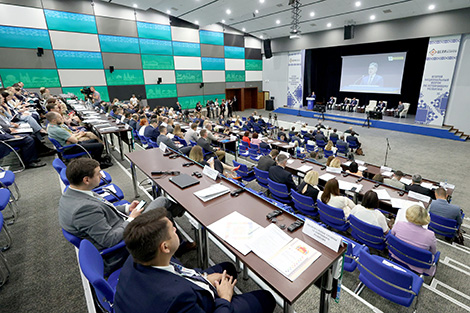
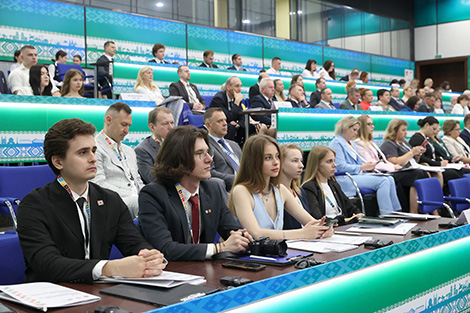
The fourth element is promoting sustainable regions. This means equal opportunities to achieve better living standards for people anywhere in Belarus. “We build housing, new hospitals, schools, sports facilities. We have built great roads to connect all regional centers of the country with the capital city, we have renovated important sections of national and local roads, and repaired bridges. The initiative of the head of state “One district - one project” has given a serious impetus to regional development, and it helps address the most pressing problems for each region today: new production capacities and new jobs,” emphasized Igor Petrishenko.
The fifth element is a healthy environment. This necessitates widespread use of rational and sustainable production and consumption models to preserve natural resources for generations to come. “Belarus is a country with a clean environment. To remain so, we need to reduce greenhouse gas emissions, industrial waste and human activity, and on the other hand, we need to preserve and build up resource potential. We cut greenhouse gas emissions by 40% by 1990. We recycled more than a third of solid municipal waste and increased the share of water bodies with the environmental status of “good and above” to 68%,” the deputy prime minister said.
“These five priorities - family, knowledge-based economy, partnership, regions, environment – are the pillars of our social policy. Our principle remains unchanged. An individual and their interests are what matters most,” Igor Petrishenko concluded.







 print version
print version make home page
make home page add to bookmarks
add to bookmarks

